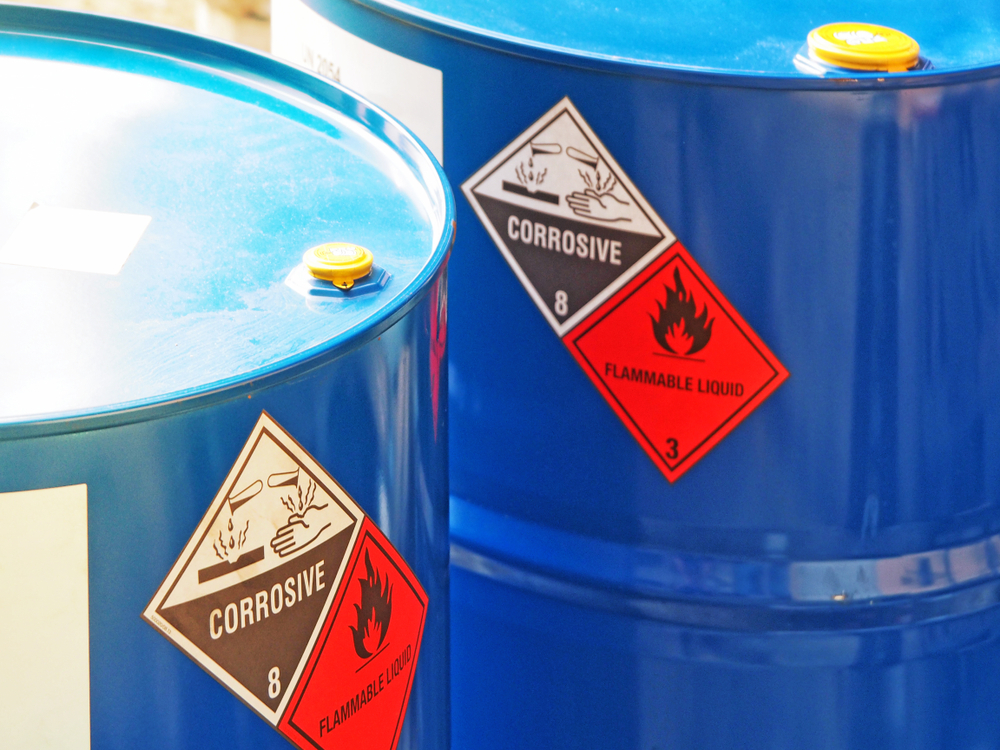Cleaning up hazardous waste
Preventing, controlling and managing pollution by hazardous chemicals and wastes is central to improving the health and well-being of people and planet, but despite remarkable progress, there is still work to be done – and there are specific ways in which the G7 can help
The world today faces three major, interconnected environmental crises: pollution, climate change and biodiversity loss. These are all driven by anthropogenic activity and unsustainable patterns of consumption and production. Preventing, controlling and managing pollution by hazardous chemicals and wastes is central to improving health, human well-being and prosperity for all.
The Basel, Rotterdam and Stockholm Conventions, together, embody the life-cycle approach to managing chemicals and waste and form the overarching international legal basis for global efforts to address the adverse impacts of hazardous chemicals and wastes.
The Basel Convention on the Control of Transboundary Movements of Hazardous Wastes and Their Disposal prevents and minimises hazardous waste generation, ensures environmentally sound management and controls transboundary movements.
The Rotterdam Convention on the Prior Informed Consent Procedure for Certain Hazardous Chemicals and Pesticides in International Trade promotes shared responsibility and cooperative efforts among parties in international trade, and contributes to environmentally sound use.
The Stockholm Convention protects human health and the environment from persistent organic pollutants. The implementation of these three conventions contributes to addressing the three planetary environmental crises, as well as supporting the 2030 Agenda on Sustainable Development.
Remarkable progress
Over the past 30 years there has been remarkable progress on the environmentally sound management of hazardous chemicals and wastes. In response to illegal transboundary movements of hazardous wastes, parties to the Basel Convention committed to promote and implement more efficient waste prevention and minimisation strategies, take measures to decouple economic growth and environmental impacts, and encourage more systematic and comprehensive global and regional efforts for improved access to cleaner production methods, including through capacity building and technology transfer. Recently, the Conference of the Parties amended the Basel Convention to address the transboundary movements of plastics and e-wastes more effectively.
Amendments adopted in May 2019 enhanced the control of the transboundary movements of plastic waste and clarified the scope of the convention as it applies to such waste. In addition, the COP also adopted a decision on further actions to address plastic waste. The decision includes actions for preventing and minimising the generation of plastic waste, improving its environmentally sound management and controlling its transboundary movement, reducing the risk from hazardous constituents in plastic waste, and public awareness, education and information exchange.
Amendments adopted in June 2022 enlarged the control of transboundary movements of e-waste and made all electronic and electrical waste subject to the prior informed consent procedure.
The number of hazardous chemicals subject to the prior informed consent procedure under the Rotterdam Convention has also increased throughout the years. Currently, 54 chemicals are listed in Annex III, 35 pesticides (including three severely hazardous pesticide formulations), 18 industrial chemicals and one chemical in both the pesticide and the industrial chemical categories. The most recent inclusions are decabromodiphenyl ether and perfluorooctanoic acid, its salts and related compounds.
Positive results
The Stockholm Convention, which initially included 12 persistent organic pollutants, today lists 31 chemicals, with more in the pipeline. Perfluorohexane sulphonic acid, its salts and related compounds were listed in 2022 in Annex A for elimination. As highlighted in the recently released second effectiveness evaluation report, monitoring results indicate that regulations targeting POPs have successfully reduced POPs levels in humans and the environment.
Despite this progress, the work of the Basel, Rotterdam and Stockholm Conventions is not done yet. The Stockholm Convention’s time-bound target on polychlorinated biphenyls is fast approaching, and with an estimated 721,000 tons still to be eliminated, there is a high risk this target will not be met. PCBs are among the 12 initial POPs listed under the Stockholm Convention: their production and new uses are banned. Parties to the convention must eliminate the use of PCBs in equipment by 2025 and ensure the environmentally sound waste management of liquids containing PCBs and equipment contaminated with PCBs by 2028.
Parties to the Stockholm Convention have sent strong messages to the financial mechanism of the convention and to donors highlighting the need to support parties’ ability to meet the targets, which they themselves negotiated and agreed to. G7 leaders at their Hiroshima Summit can help accelerate action by raising awareness on the targets for the sound management of chemicals and waste and by mobilising the financial, political and technical resources necessary to ensure the PCBs targets are met. Meeting the targets of multilateral agreements is essential to the credibility of multilateralism as a means to address global challenges, including the major and interconnected environmental crises the world faces.












